Hadith No. 3 : Five Pillars of Islam
عَنْ أَبِي عَبْدِ الرَّحْمَنِ عَبْدِ اللَّهِ بن عُمَرَ بْنِ الخَطَّابِ رضي الله عنهما قَالَ: سَمِعْتُ رَسُولَ اللَّه صلى الله عليه وسلم يَقُولُ: "بُنِيَ الإِسْلامُ عَلَي خَمْسٍ: شَهَادَةِ أَنْ لَا إِلَهَ إِلَّا اللَّهُ، وَأَنَّ مُحَمَّدًا عَبْدُهُ وَرَسُولُهُ، وَإِقَام الصَّلاةِ، وَإِيتَاءِ الزَّكَاةِ، وَحَجِّ الْبَيْتِ، وَصَوْمِ رَمَضَانَ" أَخْرَجَهُ البُخَارِيُّ وَمُسْلِمٌ (1).
Translation: "On the authority of Abu Abd al-Rahman Abdullah, the son of Umar ibn al-Khattab (may Allah be pleased with them both), who said: I heard the Messenger of Allah ﷺ say: 'Islam has been built on five [pillars]: testifying that there is no god but Allah and that Muhammad is the Messenger of Allah, establishing the prayer, paying the zakat, making the pilgrimage to the House, and fasting in Ramadan.' (Related by Bukhari and Muslim)"
About the narrator: Ibn Umar (Abdullah ibn Umar ibn al-Khattab)
Ibn Umar, Abdullah, the son of Umar ibn al-Khattab, was one of the prominent companions of the Prophet Muhammad ﷺ. Born one year before the Prophethood, he accepted Islam along with his father in Mecca at a young age. Some reports suggest he embraced Islam even before his father. Ibn Umar migrated to Medina with his father, although some say he preceded him. He did not participate in the Battle of Badr as he was too young, being only fourteen years old during the Battle of Uhud, where the Prophet ﷺ deemed him too young to fight. However, by the time of the Battle of the Trench, he was fifteen and was allowed by the Prophet to join the battle. After that, he never missed any expedition with the Prophet.
Ibn Umar was known for his deep piety, knowledge, and asceticism among his companions. He was one of the leading jurists and muftis among the Sahabah (companions). He served as a mufti in Islam for sixty years. He was among the most knowledgeable of the companions regarding the rituals of Hajj.
He was known for his generosity, frequently giving in charity, especially from the possessions he cherished most. It was said that when his servants noticed this, they would flock to the mosque and demonstrate their piety, hoping to be freed by him, to which Ibn Umar would respond, "Whoever deceives us in Allah's name, we are deceived by him." He has freed hundreds of slaves.
Out of religious scrupulousness, he chose to abstain from involvement in political conflicts, notably refraining from fighting with either Hazrat Ali or Muawiyah during the fitna (civil strife). However, later, when it became clear to him which side was the transgressing faction, he regretted not having fought alongside Ali (may Allah honour his face).
Ibn Umar was also famous for his love of pilgrimage. It is said that he performed Hajj sixty times and Umrah one thousand times and that he endowed a thousand horses in the cause of Allah.
He lived a long life, passing away at the age of eighty-six. Ibn Umar died in Mecca in the year 73 AH (692 CE). His death was considered martyrdom because of an incident involving the Umayyad governor al-Hajjaj, who, after being rebuked by Ibn Umar, ordered a man to poison the tip of his spear and harm Ibn Umar during the Tawaf (circumambulation of the Kaaba). Ibn Umar fell ill and passed away a few days later. Before his death, when al-Hajjaj visited him and inquired about the assailant, Ibn Umar responded that he would not seek revenge as it was al-Hajjaj himself who had ordered the attack.
Ibn Hajar Al-Haithami, in his explanation on Forty Hadiths, says that Ibn Umar narrated 1,630 hadiths from the Prophet Muhammad ﷺ. Of these, Bukhari and Muslim agreed on 170 hadiths; Bukhari narrated 80 exclusively, and Muslim narrated 31 exclusively.
Importance of the Hadith:
This hadith points out that Islam is built upon these five pillars, which are considered its essential foundations. The hadith succinctly and eloquently gathers these pillars, making it one of the most important hadiths for understanding the fundamental aspects upon which the religion depends.
Ibn Rajab, may Allah have mercy on him, mentioned that the purpose of this hadith is to represent Islam as a building established on five essential pillars. If any of these pillars are lost, the building may collapse or weaken. The existence and stability of Islam primarily depend on these five pillars. If all of them, or even just the two testimonies of faith, are lost, then Islam ceases to exist without any doubt.
Ibn Hajar al-Haytami, may Allah have mercy on him, commented that this hadith is of great significance, as it is one of the foundational principles of Islam and comprehensive in its rulings. It includes knowledge of the religion and what it relies upon, and it summarizes its pillars, all of which are mentioned in the Quran. This hadith is also included in the famous Hadith of Gabriel.
The Five Pillars:
Shahada (Testimony of Faith):
Explanation: The first and foremost pillar is the Shahada, the testimony that there is no deity worthy of worship except Allah and that Muhammad ﷺ is His Messenger. This declaration is the entry point into Islam; without it, one cannot be considered a Muslim. The Shahada not only affirms the oneness of Allah (Tawhid) but also acknowledges the finality of the Prophethood with Muhammad (peace be upon him).
Shahadah means to testify, and it denotes believing firmly in his heart and declaring it with his tongue. The phrase "testifying that there is no god but Allah and that Muhammad ﷺ is the Messenger of Allah" refers to the declaration made with knowledge and conviction. It means that the person affirms with firm belief that there is no deity worthy of worship in truth except Allah, the Almighty and Muhammad ﷺ is the Messenger of Allah.
The two testimonies are not valid with mere intention; rather, it is required for someone who wishes to enter Islam to articulate them verbally.
The first testimony is not realized except through two conditions: First, Negating divinity and worship from all other entities, whether idols, stones, kings, jinn, saints, or anything else that is worshipped besides Allah. The second condition affirms divinity and true worship exclusively for Allah alone, without any partners.
The Name "Allah":
The word "Allah" is a unique term used in the Arabic language to refer exclusively to the Supreme Being, the Creator of the heavens and the earth. It is often referred to as "Lafdh al-Jalala" (the term of majesty).
It is noteworthy that throughout history, despite claims of divinity by various individuals, none have ever adopted this name for themselves, either before or after the advent of Islam. The Quran states, "The Lord of the heavens and the earth and whatever is between them, so worship Him and be steadfast in His worship. Do you know of anyone similar to Him?" (Surah Maryam: 65). This verse emphasizes the unique and unparalleled nature of the name "Allah," highlighting that no one has ever dared to name themselves with this grand and majestic title.
The name "Allah" is derived from the root word "ilah," which means "deity" or "god." In Arabic, "ilah" refers to any object of worship, and the word "Allah" is the specific, definitive form derived from "Al-Ilah," indicating the only true deity worthy of worship.
Translating the name "Allah" into English has been a topic of debate among scholars and translators. Some have translated it as "God" for ease of understanding by English-speaking audiences unfamiliar with the Arabic term. However, others, such as Muhammad Marmaduke Pickthall, preferred to retain the word "Allah" in translations to avoid the potential misconceptions associated with the English word "God." This is because "God" in English can be pluralized (gods) or feminized (goddess), whereas "Allah" has no plural form, no feminine form, and is free from any associations with other beings or deities.
Second Part of Testimony
The meaning of testifying that Muhammad ﷺ is the servant and messenger of Allah is to affirm that Muhammad ﷺ is a servant of Allah and that Allah sent him to convey His religion and guide all of creation. As Allah says: "And We have not sent you except comprehensively to mankind as a bringer of good tidings and a warner." (Quran 34:28) And He also says: "And We have not sent you, [O Muhammad], except as a mercy to the worlds." (Quran 21:107) This testimony necessitates believing in what the Prophet Muhammad ﷺ conveyed, obeying him in what he commanded, and avoiding what he forbade.
Second Pillar: Establishing Prayer
The second pillar is the establishment of the obligatory prayer (Salah). Prayer is a connection between the servant and his Lord, a private conversation with his Creator, and a spiritual provision that extinguishes the burning desires of souls longing for the light of Allah. It illuminates the heart and brings comfort to the soul.
Prayer holds a significant place in our religion; it is the second pillar of Islam and the first thing a servant will be held accountable for on the Day of Judgment. Allah made it obligatory upon His Prophet ﷺ in the highest place a human has ever reached and on the most honourable of nights. On the Night of Al-Isra, in the seventh heaven, the divine command for its obligation was issued. It became obligatory for the Muslim in all circumstances, in times of peace and war, in health and sickness, and it is never waived except with the loss of sanity.
It is obligatory for every sane, adult Muslim to perform five prayers each day and night, except for women during menstruation or postnatal bleeding, for whom it is waived both in terms of performance and making up the missed prayers, by unanimous consensus. If one oversleeps and misses a prayer, it is obligatory to make it up. Children are commanded to pray when they reach the age of seven, and they should be disciplined for neglecting it by the age of ten.
Additionally, prayer is the distinguishing mark between a Muslim and a disbeliever. This is evidenced by the hadith of Jabir (may Allah be pleased with him) in which the Prophet ﷺ said: "Indeed, between a man and associating partners with Allah and disbelief is abandoning the prayer." (Narrated by Muslim).
What is meant by "establishing it" (إقامتها) is to maintain the prayer regularly and in congregation with the Muslim community on time, as Allah says: "Indeed, prayer has been decreed upon the believers a decree of specified times." (Surah An-Nisa: 103).
Al-Hafiz Ibn Kathir, may Allah have mercy on him, said: "On the night of Al-Isra (the Night Journey), a year and a half before the Hijrah (migration to Medina), Allah obligated the five daily prayers upon His Messenger ﷺ. The conditions, pillars, and related matters were detailed after that, gradually, piece by piece." )Tafseer Ibn Katheer 7 :164)
The Third Pillar: Giving Zakat
Zakat, one of the most significant financial acts of worship in Islam, is a mandatory obligation that Allah, the Exalted, has emphasized alongside prayer in His book in eighty-two different places. This frequent mention underscores its immense importance. Zakat was made obligatory in the second year after the Hijrah (migration to Medina), highlighting its foundational role in the Islamic faith.
In Islamic jurisprudence, Zakat is defined as a mandatory right in specific wealth distributed to particular groups of people at designated times. It serves as a purification for the wealth and souls of the believers, cleansing them from miserliness and sins. Allah says: "Take from their wealth a charity by which you purify them and cause them increase" (Surah At-Tawbah: 103). Zakat also fosters kindness among people, strengthens community bonds, fulfils the needs of the poor, and preserves the dignity of those who might otherwise resort to begging.
Zakat is obligatory on wealth capable of growth and can sustain charitable giving. The types of wealth subject to Zakat include grazing livestock, gold and silver, produce from the earth, and trade goods. The conditions that make Zakat obligatory are:
Zakat is only due on wealth that has reached the Nisab (the minimum amount required) and the Passing of a Lunar Year, Except for produce from the earth, where this condition is not required. It must be paid promptly, although a delay may be permissible if there is a valid need. If someone refuses to pay Zakat, they are subject to disciplinary action, and the Zakat will be taken from them by force. If Zakat becomes due on someone and they die before paying it, it should be extracted from their estate before it is distributed to the heirs.
In addition to its spiritual benefits, Zakat plays a crucial role in society. When people withhold Zakat, it can lead to the removal of blessings from the earth, as highlighted in the hadith of Buraidah (may Allah be pleased with him): "No people withhold Zakat from their wealth except that Allah withholds rain from them" (Narrated by Al-Hakim and Al-Bayhaqi). Furthermore, those who withhold Zakat are warned of severe punishment in the Hereafter. The Prophet ﷺ said, as narrated in Sahih Muslim that those who hoard wealth without fulfilling its due right will be punished on the Day of Resurrection by being branded with plates of fire made from that very wealth.
Thus, Zakat is not merely a financial duty but an act of worship that purifies wealth, supports the needy, and ensures the community's well-being, all while securing the individual’s spiritual and moral integrity.
The Fourth Pillar: Fasting in the month of Ramadan
The fourth pillar is fasting during the month of Ramadan. Ramadan is a significant season during which a Muslim refines their faith and renews their commitment to Allah. It serves as a strong spiritual provision that invigorates the believer’s resolve to continue on the path of obedience even after Ramadan. Fasting during Ramadan has numerous virtues; Allah has promised forgiveness for the past sins of those who fast it with faith and anticipation of reward. Moreover, the reward for fasting is beyond measure, as indicated by the hadith: "Allah said: Every deed of the son of Adam is for him except fasting; it is for Me, and I shall reward it." (Narrated by Bukhari).
This hadith indicates the obligation of fasting during Ramadan and its status as one of the pillars of Islam. The virtues of fasting and its benefits are well-known, as demonstrated in various hadiths, including the one mentioned above.
In Islamic jurisprudence, fasting is defined as abstaining from all things that break the fast, with the intention of drawing closer to Allah from the time of true dawn until sunset. Complete fasting involves two aspects: abstaining from physical things that invalidate the fast and avoiding actions that diminish its rewards, such as refraining from obscene speech, quarrelling, and all forms of disobedience and disputes.
Fasting is obligatory for every sane, adult Muslim who is not travelling. A discerning child can also fast, and it will be considered a voluntary act of worship for them. Women who are menstruating or experiencing postnatal bleeding must break their fast and make up the missed days later. A person who is ill with a condition that is expected to improve, or a traveller, may break their fast and must make up the missed days. Those who are unable to fast due to old age or a chronic illness that has no hope of recovery are exempt from fasting, but they must feed a poor person for each day missed.
It is obligatory to have the intention of fasting from the night before for obligatory fasts. However, for voluntary fasting, it is permissible to intend to fast during the day, as the Prophet ﷺ sometimes did.
The Fifth Pillar: Hajj
The fifth of these pillars is the pilgrimage (Hajj) to the sacred House of Allah (the Kaaba). Hajj was made obligatory in the ninth year after the Hijrah. Allah says: "And [due] to Allah from the people is a pilgrimage to the House - for whoever is able to find thereto a way." (Surah Aal Imran: 97). Allah ordained Hajj to purify the souls and to train them in the meanings of servitude and obedience. Additionally, it is a great opportunity for the expiation of sins, as mentioned in the hadith: "Whoever performs Hajj to this House and does not engage in obscene or immoral behavior, he will return [free of sin] as the day his mother gave birth to him." (Narrated by Bukhari and Muslim).
Hajj is obligatory for every sane, adult, free Muslim who has the means to perform it at least once in their lifetime, as Allah says: "And [due] to Allah from the people is a pilgrimage to the House - for whoever is able to find thereto a way. But whoever disbelieves - then indeed, Allah is free from need of the worlds." (Surah Aal Imran: 97). The Prophet ﷺ emphasized this obligation in a sermon, where he said: "Allah has prescribed Hajj for you, so perform Hajj." Then Al-Aqra' ibn Habis asked, "Every year, O Messenger of Allah?" The Prophet ﷺ replied, "If I had said 'yes,' it would have become obligatory [every year], but Hajj is obligatory only once, and whatever is more than that is voluntary."_
The Hajj is obligatory upon the individual meeting the conditions. These conditions are five: Islam, freedom, sanity, reaching the age of maturity, and the ability to undertake the journey. For women, there is an additional condition of having a Mahram (male guardian). If someone has the financial and physical ability, they are obligated to perform Hajj. If a person has the financial means but is physically unable due to old age or a chronic illness, they must appoint someone to perform Hajj on their behalf. However, if someone is incapable both financially and physically, Hajj is not obligatory for them.
A child can also perform Hajj and Umrah voluntarily, and if they reach maturity, they must perform Hajj again for it to count as the obligatory pilgrimage.
Conclusion:
Islam is not limited to these five pillars; rather, it encompasses numerous acts and aspects. The Prophet Muhammad ﷺ mentioned these five pillars because they serve as the foundations of the structure of Islam. In a narration by Al-Marwazi, the wording is: "Islam is built upon five pillars," which is meant to represent Islam as a building, with these five pillars being its essential supports. Without these pillars, the structure cannot stand, and the other qualities of Islam are supplementary to this structure. If any of these qualities are lacking, the structure is incomplete but still standing. However, the structure would collapse entirely if these five pillars were removed, particularly if the testimony of faith is absent.
Whoever adheres to these five pillars becomes a Muslim, and whoever abandons all of them or denies any of them becomes a disbeliever. Scholars have debated the status of someone who abandons prayer out of negligence and laziness, with two well-known opinions.
The Prophet ﷺ said, "The covenant between us and them is the prayer; whoever abandons it has disbelieved," as reported by Ahmad with an authentic chain of narration. Umar ibn al-Khattab said, "There is no share in Islam for the one who abandons prayer," and Abdullah ibn Shafiq said, "The companions of the Messenger of Allah (peace be upon him) did not consider the abandonment of any deed as disbelief except for prayer."
As for abandoning any of the other pillars of Islam besides prayer, the majority view is that abandoning zakat, fasting, or pilgrimage does not constitute disbelief, although it is a serious sin.
Disclaimer
The views expressed in this article are the author’s own and do not necessarily mirror Islamonweb’s editorial stance.




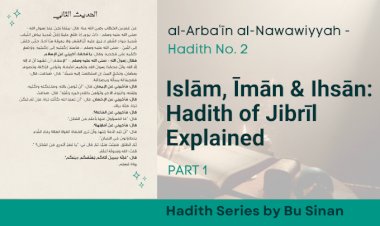

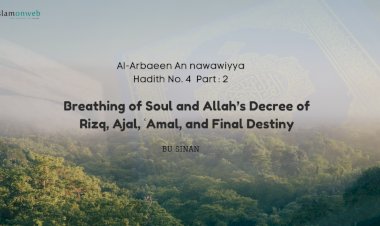
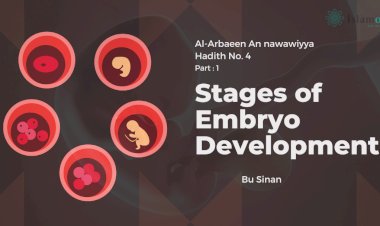
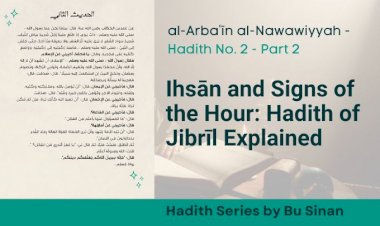
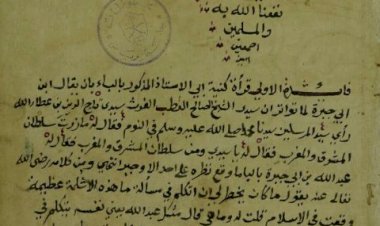














Leave A Comment